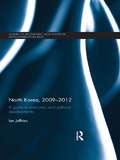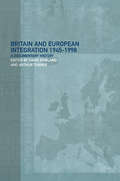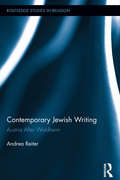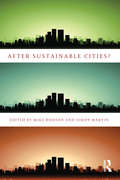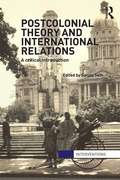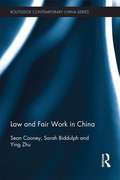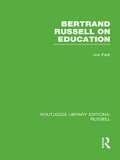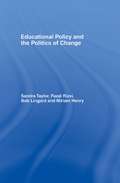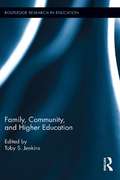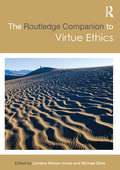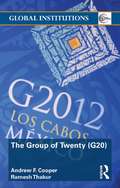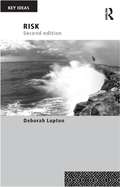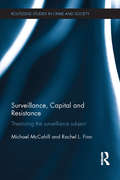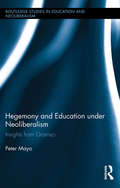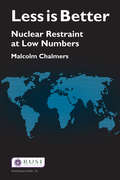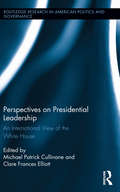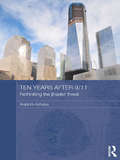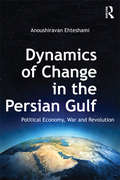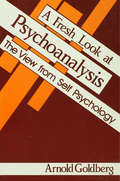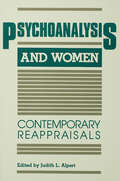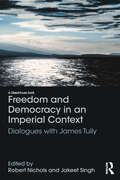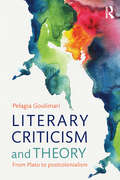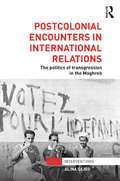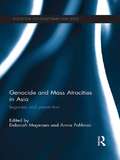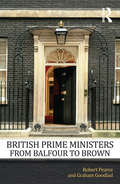Special Collections
Benetech’s Global Certified Accessible Titles
Description: Benetech’s GCA program is the first independent third-party EPUB certification to verify ebook accessibility. By creating content that is born accessible, publishers can meet the needs of all readers. Learn more: https://bornaccessible.benetech.org/
- Table View
- List View
North Korea, 2009-2012
by Ian JeffriesNorth Korea continues to be a country of great concern internationally, where future developments are uncertain, especially as a result of the succession to the leadership of Kim Jong-un following the death of Kim Jong-il. It is also a country which is relatively unknown and relatively little studied. This book provides a comprehensive, detailed survey of economic and political developments in the last few years. As such it provides many insights into the current trends which are likely to shape the country’s future direction.
Britain and European Integration, 1945 - 1998
by David Gowland and Arthur TurnerAn illuminating and comprehensive exploration of a subject which has dominated the British political scene for much of the period since the Second World War. Through a wide and varied collection of documents, complemented by detailed and perceptive analysis, this book explores Britain's reactions to the dynamics of European integration.Key subjects covered include;European unity and "missed opportunities" in the early post-war yearsthe Commonwealth dimension and the "special relationship"Britain's belated attempts to join the EC in the 1960sthe singlecurrencyMany of its numerous sources are made widely accessible here for the first time. It is an invaluable resource for all students of Politics, Modern British History and European Studies.
Contemporary Jewish Writing
by Andrea ReiterThis book examines Jewish writers and intellectuals in Austria, analyzing filmic and electronic media alongside more traditional publication formats over the last 25 years. Beginning with the Waldheim affair and the rhetorical response by the three most prominent members of the survivor generation (Leon Zelman, Simon Wiesenthal and Bruno Kreisky) author Andrea Reiter sets a complicated standard for ‘who is Jewish’ and what constitutes a ‘Jewish response.’ She reformulates the concepts of religious and secular Jewish cultural expression, cutting across gender and Holocaust studies. The work proceeds to questions of enacting or performing identity, especially Jewish identity in the Austrian setting, looking at how these Jewish writers and filmmakers in Austria ‘perform’ their Jewishness not only in their public appearances and engagements but also in their works. By engaging with novels, poems, and films, this volume challenges the dominant claim that Jewish culture in Central Europe is almost exclusively borne by non-Jews and consumed by non-Jewish audiences, establishing a new counter-discourse against resurging anti-Semitism in the media.
After Sustainable Cities?
by Simon Marvin and Mike HodsonA sustainable city has been defined in many ways. Yet, the most common understanding is a vision of the city that is able to meet the needs of the present without compromising the ability of future generations to meet their own needs. Central to this vision are two ideas: cities should meet social needs, especially of the poor, and not exceed the ability of the global environment to meet needs.After Sustainable Cities critically reviews what has happened to these priorities and asks whether these social commitments have been abandoned in a period of austerity governance and climate change and replaced by a darker and unfair city. This book provides the first comprehensive and comparative analysis of the new eco-logics reshaping conventional sustainable cities discourse and environmental priorities of cities in both the global north and south. The dominant discourse on sustainable cities, with a commitment to intergenerational equity, social justice and global responsibility, has come under increasing pressure. Under conditions of global ecological change, international financial and economic crisis and austerity governance new eco-logics are entering the urban sustainability lexicon – climate change, green growth, smart growth, resilience and vulnerability, ecological security. This book explores how these new eco-logics reshape our understanding of equity, justice and global responsibility, and how these more technologically and economically driven themes resonate and dissonate with conventional sustainable cities discourse. This book provides a warning that a more technologically driven and narrowly constructed economic agenda is driving ecological policy and weakening previous commitment to social justice and equity. After Sustainable Cities brings together leading researchers to provide a critical examination of these new logics and identity what sort of city is now emerging, as well as consider the longer-term implication on sustainable cities research and policy.
Postcolonial Theory and International Relations
by Sanjay SethWhat can postcolonialism tell us about international relations? What can international relations tell us about postcolonialism? In recent years, postcolonial perspectives and insights have challenged our conventional understanding of international politics. Postcolonial Theory and International Relations is the first book to provide a comprehensive and accessible survey of how postcolonialism radically alters our understanding of international relations. Each chapter is written by a leading international scholar and looks at the core components of international relations – theories, the nation, geopolitics, international law, war, international political economy, sovereignty, religion, nationalism, Empire etc. – through a postcolonial lens. In so doing it provides students with a valuable insight into the challenges that postcolonialism poses to our understanding of global politics.
Law and Fair Work in China
by Ying Zhu and Sarah Biddulph and Sean CooneyChina’s economic reforms have brought the country both major international clout and widespread domestic prosperity. At the same time, the reforms have led to significant social upheaval, particularly manifest in labour relations. Each year, several thousand disputes break out over working conditions, many of them violent, and the Chinese state has responded with both legal and political strategies. This book investigates how Chinese governments have used law, and other forms of regulation, to govern working conditions and combat labour disputes. Starting from the early years of the Republican period, the book traces the evolution of the law of work in modern China right up to the reforms of the present day. It considers the structure of Chinese work law, drawing on both Chinese and Western scholarship to provide new insights into its unique features and assess where the law is innovative and where it is stagnant and unresponsive. The authors explore the various legal and extra-legal techniques successive Chinese governments have adopted to enforce work law and the responses of firms, workers and organizations to these practices.
Bertrand Russell On Education
by Joe ParkAlthough scholars from many disciplines have turned their attention to Russell’s work and appraised its significance for a number of fields, and an extensive literature on him emerged, until this book, first published in 1963, no thorough study on Russell’s contribution to education – an area to which he devoted no small part of his energies – had yet appeared. The book is based on interviews with Russell as well as diligent research in his writings and the sources of his thought and will enlighten all who think seriously about education. It addresses specifically the usefulness of Russell’s thought for American educators, which was challenging as Russell dared to question traditional ends and means of education at the time.
Educational Policy and the Politics of Change
by Sandra Taylor and Fazal Rizvi and Bob Lingard and Miriam HenryGovernments around the world are trying to come to terms with new technologies, new social movements and a changing global economy. As a result, educational policy finds itself at the centre of a major political struggle between those who see it only for its instrumental outcomes and those who see its potential for human emancipation. This book is a successor to the best-selling Understanding Schooling (1988). It provides a readable account of how educational policies are developed by the state in response to broader social, cultural, economic and political changes which are taking place. It examines the way in which schools live and work with these changes, and the policies which result from them. The book examines policy making at each level, from perspectives both inside and outside the state bureaucracy. It has a particular focus on social justice. Both undergraduate and postgraduate students will find that this book enables them to understand the reasoning behind the changes they are expected to implement. It will help to prepare them to confront an uncertain educational world, whilst still retaining their enthusiasm for education.
Family, Community, and Higher Education
by Toby S. JenkinsThis book explores social topics and experiences that illustrate the various ways in which the family unit influences and impacts college students. In the text, the authors not only explore family memories, but also challenge the traditional lack of inclusion and appreciation for “family” as knowledge producers and educational allies. This book spotlights the family unit as a critical factor within the educational experience—one that prepares, supports, and sustains educational achievement through both everyday simple lessons and critical and difficult family challenges. Through these experiences, families teach the lessons of survival that often help students to persist in college.
The Routledge Companion to Virtue Ethics
by Michael Slote and Lorraine L BesserVirtue ethics is on the move both in Anglo-American philosophy and in the rest of the world. This volume uniquely emphasizes non-Western varieties of virtue ethics at the same time that it includes work in the many different fields or areas of philosophy where virtue ethics has recently spread its wings. Just as significantly, several chapters make comparisons between virtue ethics and other ways of approaching ethics or political philosophy or show how virtue ethics can be applied to "real world" problems.
The Group of Twenty
by Andrew F. Cooper and Ramesh ThakurThis work offers a concise examination of the purpose, function and practice of the Group of Twenty (G20) summit. Providing a comprehensive historical account of the G20 Finance Ministers and Central Bank Governors process, the text then moves on to outline the conditions, events and debates that led to the formation of the permanent, expanded leaders’ level forum. The historical span of the G20 Summit process is not long, but the global transformations that precipitated it are crucial when seeking to understand it. Cooper & Thakur explore a variety of major debates, including: Governance by self-selected groups versus mandated multilateral organizations the legitimacy of informal leadership the issue of the G20’s composition of both ‘solution’ countries and ‘problem’ countries the role of the emerging powers new conceptions of North-South relationships This work offers a detailed examination of the ongoing shifts in economic power and the momentum toward global institutional reform, illustrating how the G20 has moved from a crisis committee to the premier global forum over this short but intense history, and mapping out its comparative advantages and key challenges ahead.
Risk
by Deborah LuptonRisk (second edition) is a fully revised and expanded update of a highly-cited, influential and well-known book. It reviews the three major approaches to risk in social and cultural theory, devoting a chapter to each one. These approaches were first identified and described by Deborah Lupton in the original edition and have since become widely used as a categorisation of risk perspectives. The first draws upon the work of Mary Douglas to articulate the 'cultural/symbolic' perspective on risk. The second approach is that of the 'risk society' perspective, based on the writings of Ulrich Beck and Anthony Giddens. The third approach explored here is that of the 'governmentality' perspective, which builds on Michel Foucault's work. Other chapters examine in detail the relationship between concepts of risk and concepts of selfhood and the body, the notion of Otherness and how this influences the ways in which people respond to and think about risk, and the pleasures of voluntary risk-taking, including discussion of edgework. This new edition examines these themes in relation to the newly emerging threats of the twenty-first century, such as climate change, extreme weather events, terrorism and global financial crises. It will appeal to students and scholars throughout the social sciences and humanities.
Surveillance, Capital and Resistance
by Michael McCahill and Rachel L. FinnSurveillance, Capital and Resistance is a major contribution to current debates on the subjective experience of surveillance. Based on a large research project undertaken in a Northern City in the UK and focusing mainly on the use of surveillance in the context of policing and security, the book explores how a diverse range of social groups (‘school children’, ‘political protesters’, ‘offenders’, ‘unemployed people’, ‘migrants’, and ‘police officers’) experience and respond to being monitored by ‘new surveillance’ technologies such as CCTV surveillance cameras and computers. The book interweaves surveillance theory with the work of Pierre Bourdieu to argue that the distribution of various forms of ‘capital’ – economic, social, cultural and symbolic – in any given ‘field’ operate as a range of goods or resources that structure the dynamics of surveillance practices and power relations, including the ability to contest surveillance. The term surveillance capital is introduced to refer to the tacit knowledge and everyday forms of cultural know-how that allow surveillance subjects to contest surveillance in a variety of local and specific settings. The book is essential reading for anyone that might be interested in how people experience and respond to the new surveillance measures currently used in the crime control field. It will be key reading for students and academics interested in surveillance studies, childhood studies, media studies, criminal justice and migration studies.
Hegemony and Education Under Neoliberalism
by Peter MayoBased in a holistic exposition and appraisal of Gramsci’s writings that are of relevance to education in neoliberal times, this book--rather than simply applying Gramsci's theories to issues in education--argues that education constitutes the leitmotif of his entire oeuvre and lies at the heart of his conceptualization of the ancient Greek term hegemony that was used by other political theorists before him. Starting from this understanding, the book goes on to compare Gramsci's theories with those of later thinkers in the development of a critical pedagogy that can confront neoliberalism in all its forms.
Less is Better
by Malcolm ChalmersDespite the rise of ‘new’ security threats like terrorism, cyber-war and piracy, the terrible destructive power of nuclear weapons still hangs over the world. Discussion on further strategic nuclear arms reduction has tended to be dominated by the analysis of possible trade-offs between the US and Russia. But as the prospect of further cuts below ‘New START’ levels is contemplated, increasing attention needs to be paid to the possible shape of a new, multi-power approach to nuclear restraint. While restraint at low numbers goes with the grain of thinking in most nuclear states, correct sequencing will be vital. Using the New START framework, attention could initially be focused on incremental decreases in US and Russian stocks of the most dangerous weapons. Thereafter, the other nuclear powers would need to take steps to limit the size and capabilities of their own arsenals in a process of mutual reductions. If successful, the benefits would be wide ranging: successful restraint amongst existing nuclear-armed states could engender trust, as well as provide mechanisms for reducing the risks of rapid escalation in the event of limited conflict. Less is Better considers the various challenges and opportunities for ensuring restraint at low numbers in today’s complicated web of bilateral nuclear relationships and in the context of the debate on ‘Global Zero’.
Perspectives on Presidential Leadership
by Michael Patrick Cullinane and Clare Frances ElliottIn 2011 Barack Obama invited ten distinguished biographers to the White House to ask them one question: which past American president should I emulate? This was not the first time Obama asked scholars this, but the answer he received would differ as presidential legacies waxed and waned. In 2008 Obama chose Lincoln; in 2009, Reagan; and in 2010, Theodore Roosevelt. Perspectives on Presidential Leadership is an examination of presidential legacy, and in particular an analysis of the first ever UK ranking of American presidents which took place in 2011. In thirteen chapters, thirteen individual presidential administrations are assessed. Some presidents have been considered a success, others a failure; both types are featured in these thirteen case studies in a measured attempt to understand how the perception of presidential leadership evolves, shifts, and contorts across three centuries of American politics. The case studies also derive from the expertise of the collected British, Irish and Canadian authors, all of whom are leading scholars in their fields, and many of which took part in the 2011 survey. At a time when understanding presidential legacy is in high demand, this book offers a unique international perspective. Through extended commentary and inter-disciplinary study of the UK perspective it provides groundbreaking research.
Ten Years After 9/11 - Rethinking the Jihadist Threat
by Arabinda AcharyaTen years after the 9/11 attacks this book reassesses the effectiveness of the "War on Terror", considers how al-Qaeda and other jihadist movements are faring, explores the impact of wider developments in the Islamic world such as the Arab Spring, and discusses whether all this suggests that a new approach to containing international, especially jihadist, terrorism is needed. Among the book’s many richly argued conclusions are that the "War on Terror" and the invasions of Afghanistan and Iraq have brutalised the United States; that the jihadist threat is not one, but rather a wide range of separate, unconnected struggles; and that al-Qaeda’s ideology contains the seeds of its own destruction, in that although many Muslims are content to see the United States worsted, they do not approve of al-Qaeda’s violence and are not taken in by the jihadists’ empty promises of utopia.
Dynamics of Change in the Persian Gulf
by Anoushiravan EhteshamiThe Persian Gulf has come to represent one of the most strategically significant waterways of the world. In terms of geography, geopolitics, resources, global political economy, and regional influence, the Gulf is perhaps home to the world’s most significant group of countries. Focusing on the complexities of the interplay between domestic-level changes and region-wide interactions, this book presents the reader with the first comprehensive survey of the dynamics of change in this crucial area. Systemic-oriented in its approach, the impact of war and revolution on the countries of the sub-region is discussed, and the ways in which these factors have shaped the security dilemmas and responses of the Gulf States is also explored. The role of oil is examined in terms of the impact of its income on these states and societies, and the manner in which oil has shaped the integration of these states into the global system. Oil has shrunk developmental time in these countries, and has accelerated generational shift. At the same time, it has created the dialectical relationship which now characterizes the difficult balance between prosperity and instability which is at the heart of the sub-region. Casting new light on the workings of a strategically significant part of the international system, this book will be an essential resource for students and scholars of international relations, international security and Middle Eastern politics.
A Fresh Look at Psychoanalysis
by Arnold I. GoldbergGoldberg uses the questions posed by self psychology as point of entry to a thoughtful consideration of issues with which every clinician wrestles: the scientific status analysis, the relationships among its competing theories, the role of empathy in analytic method, and the place of the "self" in the analyst's explanatory strategies. Clinical chapters show how the notion of the self can provide organizing insights into little-appreciated character structures.
Psychoanalysis and Women
by Judith L. AlpertWithin the psychoanalytic framework, there is a growing body of research and thinking about female development. In addition, there is ongoing research within other areas of psychology, such as developmental psychology and social psychology, which has important implications for an understanding of women's adult development. Often these research findings are not readily available to the analytic community, nor has much of the research been incorporated into a psychoanalytic framework. Psychoanalysis and Women broadens analytic thinking by integrating contemporary literature from psychoanalysis with that of other areas, both within and outside psychology, which has implications for the undertanding of women's development. This literature is conceptualized within a psychoanalytic framework. A basic premise underlying this book is that psychoanalysis needs continuing review and revision in terms of what women and men are about and a continuing focus on whether and how unfounded biases prevent analysts from understanding patients. The present volume considers how sexism and feminism are affecting psychoanalysis and exemplifies how the emerging field of psychoanalysis of women and the issues its existence raises should be conceptualized. It also exemplifies some of the positive contributions that a feminist outlook gives to the study of human behavior and should esxpand the range of hypotheses that we have about people.
Freedom and Democracy in an Imperial Context
by Robert Nichols and Jakeet SinghFreedom and Democracy in an Imperial Context: Dialogues with James Tully gathers leading thinkers from across the humanities and social sciences in a celebration of, and critical engagement with, the recent work of Canadian political philosopher James Tully. Over the past thirty years, James Tully has made key contributions to some of the most pressing questions of our time, including: interventions in the history of moral and political thought, contemporary political philosophy, democracy, citizenship, imperialism, recognition and cultural diversity. In 2008, he published Public Philosophy in a New Key, a two-volume work that promises to be one of the most influential and important statements of legal and political thought in recent history. This work, along with numerous other books and articles, is foundational to a distinctive school of political thought, influencing thinkers in fields as diverse as Anthropology, History, Indigenous Studies, Law, Philosophy and Political Science. Critically engaging with James Tully’s thought, the essays in this volume take up what is his central, and ever more pressing, question: how to enact democratic practices of freedom within and against historically sedimented and actually existing relationships of imperialism?
Literary Criticism and Theory
by Pelagia GoulimariThis incredibly useful volume offers an introduction to the history of literary criticism and theory from ancient Greece to the present. Grounded in the close reading of landmark theoretical texts, while seeking to encourage the reader's critical response, Pelagia Goulimari examines: major thinkers and critics from Plato and Aristotle to Foucault, Derrida, Kristeva, Said and Butler; key concepts, themes and schools in the history of literary theory: mimesis, inspiration, reason and emotion, the self, the relation of literature to history, society, culture and ethics, feminism, poststructuralism, postcolonialism, queer theory; genres and movements in literary history: epic, tragedy, comedy, the novel; Romanticism, realism, modernism and postmodernism. Historical connections between theorists and theories are traced and the book is generously cross-referenced. With useful features such as key-point conclusions, further reading sections, descriptive text boxes, detailed headings, and with a comprehensive index, this book is the ideal introduction to anyone approaching literary theory for the first time or unfamiliar with the scope of its history.
Postcolonial Encounters in International Relations
by Alina SajedPostcolonial Encounters in International Relations examines the social and cultural aspects of the political violence that underpinned the French colonial project in the Maghreb, and the multi-layered postcolonial realities that ensued. This book explores the reality of the lives of North African migrants in postcolonial France, with a particular focus on their access to political entitlements such as citizenship and rights. This reality is complicated even further by complex practices of memory undertaken by Franco-Maghrebian intellectuals, who negotiate, in their writings, between the violent memory of the French colonial project in the Maghreb, and the contemporary conundrums of postcolonial migration. The book pursues thus the politics of (post)colonial memory by tracing its representations in literary, political, and visual narratives belonging to various Franco-Maghrebian intellectuals, who see themselves as living and writing between France and the Maghreb. By adopting a postcolonial perspective, a perspective quite marginal in International Relations, the book investigates a different international relations, which emerges via narratives of migration. A postcolonial standpoint is instrumental in understanding the relations between class, gender, and race, which interrogate and reflect more generally on the shared (post)colonial violence between North Africa and France, and on the politics of mediating violence through complex practices of memory.
Genocide and Mass Atrocities in Asia
by Deborah Mayersen and Annie PohlmanThe twentieth century has been labelled the ‘century of genocide’, and according to estimates, more than 250 million civilians were victims of genocide and mass atrocities during this period. This book provides one of the first regional perspectives on mass atrocities in Asia, by exploring the issue through two central themes. Bringing together experts in genocide studies and area specialists, the book looks at the legacy of past genocides and mass atrocities, with case studies on East Timor, Cambodia and Indonesia. It explores the enduring legacies of trauma and societal divisions, the complex and continuing impacts of past mass violence, and the role of transitional justice in the aftermath of mass atrocities in Asia. Understanding these complex legacies is crucial for the region to build a future that acknowledges the past. The book goes on to consider the prospects and challenges for preventing future mass atrocities in Asia, and globally. It discusses both regional and global factors that may impact on preventing future mass atrocities in Asia, and highlights the value of a regional perspective in mass atrocity prevention. Providing a detailed examination of genocide and mass atrocities through the themes of legacies and prevention, the book is an important contribution to Asian Studies and Security Studies.
British Prime Ministers From Balfour to Brown
by Robert Pearce and Graham GoodladThe origins of the post of Prime Minister can be traced back to the eighteenth century when Sir Robert Walpole became the monarch’s principal minister. From the dawn of the twentieth century to the early years of the twenty-first, however, both the power and the significance of the role have been transformed. British Prime Ministers from Balfour to Brown explores the personalities and achievements of those twenty individuals who have held the highest political office between 1902 and 2010. It includes studies of the dominant premiers who helped shape Britain in peace and war – Lloyd George, Churchill, Thatcher and Blair – as well as portraits of the less familiar, from Asquith and Baldwin to Wilson and Heath. Each chapter gives a concise account of its subject’s rise to power, ideas and motivations, and governing style, as well as examining his or her contribution to policy-making and handling of the major issues of the time. Robert Pearce and Graham Goodlad explore each Prime Minister’s interaction with colleagues and political parties, as well as with Cabinet, Parliament and other key institutions of government. Furthermore they assess the significance, and current reputation, of each of the premiers. This book charts both the evolving importance of the office of Prime Minister and the continuing restraints on the exercise of power by Britain’s leaders. These concise, accessible and stimulating biographies provide an essential resource for students of political history and general readers alike.
